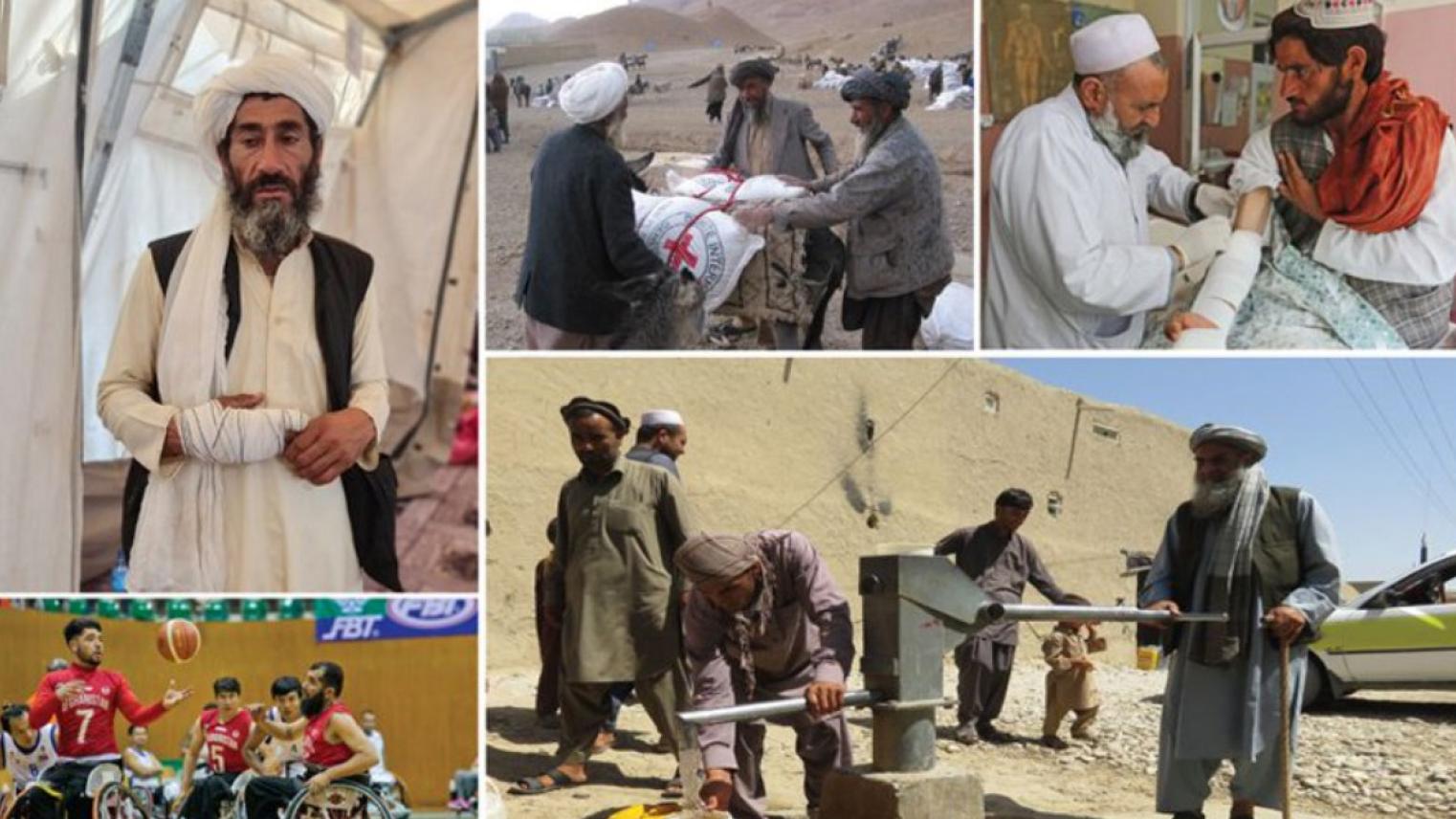Join the International Committee of the Red Cross and the Coral Bell School to discuss Afghanistan today: The humanitarian situation, the strength and resilience of the people of Afghanistan, as well as ongoing efforts to address critical needs.
Since August 2021, the humanitarian conditions within Afghanistan have reached devastating proportions. While fighting has significantly decreased many people remain at severe risk. Three decades of armed conflict in Afghanistan has left 29.2 million people, more than half of the population, in need of critical humanitarian assistance.
- Approximately 8 out of every 10 people of Afghanistan drink unsafe water
- 35 per cent of healthcare facilities lack access to at least basic necessities such as power, drinking water, and supplies.
The International Committee of the Red Cross has served the people of Afghanistan for more than 40 years and continues to carry out humanitarian operations across the country.
Visiting Australia to highlight the realities of the situation in Afghanistan and provide a unique firsthand perspective, outgoing International Committee of the Red Cross Head of Delegation, Eloi Fillion, will be joined by renowned Australian photojournalist Andrew Quilty, Refugee Advocate Shukufa Tahiri and Dr Nemat Bizhan of the ANU Crawford School of Public Policy for an open and engaging public conversation on Afghanistan today.
Speakers:
Eloi Fillion took on his current position as Head of Delegation at the International Committee of the Red Cross (ICRC) in Afghanistan in June 2021. After joining the ICRC in 1998 as Legal Adviser in Geneva, Eloi Fillion moved to the operations and served in India, Uganda, Afghanistan, Ethiopia, Iraq, Sudan, Israel and Palestine with increasing management responsibilities. In 2009 he became the Deputy Head of Delegation in Afghanistan. Between 2011 and 2014 he was the Deputy Head of Operations for the Middle East Region, mainly working on Syria. He worked as the Head of Delegation in Sudan from 2015 to 2016. Lastly, he served as the Head of Delegation in Nigeria from 2017 to 2021. Eloi Fillion holds a Master’s degree in Public International Law from the University of Aix-en Provence (France) and a BA + Maîtrise in Public International Law from the Exeter University (UK) and the University of Aix-en-Provence (France) respectively.
Andrew Quilty is an Australian photojournalist and reporter who was based in Afghanistan from 2013 to 2022. He is the recipient of numerous international awards, including nine Walkley Awards, the World Press Photo Award and the Overseas Press Club of America award. Quilty was one of the only foreign journalists to remain in Afghanistan when the Taliban retook control in 2021. His first book, August in Kabul: America's Last Days in Afghanistan, chronicling the chaotic period, was published in 2022. His second book, This is Afghanistan: 2014 - 2021 is a photographic record of his nine years in Afghanistan and was published last month.
Shukufa Tahiri is a Policy Officer with the Refugee Council of Australia. Her work involves policy analysis, research and advocacy on issues affecting people seeking asylum and refugees. She is an executive director at Akademos Society, a charity that helps fund the education of girls and youth including child labourers in Afghanistan and Pakistan. She was chosen by the Australian Department of Foreign Affairs and Trade (DFAT) as one of the two Australian civil society representative to attend the month long UN Human Rights Council session 40 in Geneva. Amnesty International Australia recognised her as one of the 15 women championing human rights in Australia in 2017. The Australian Financial Review has also named her as one of 2018’s 100 women of influence in Australia.
Nematullah Bizhan is a Lecturer at the Development Policy Centre, Crawford School of Public Policy, The Australian National University. He is also a Senior Research Associate with the Global Economic Governance Program, Blavatnik School of Government, Oxford University. In 2017 and 2018, Nematullah was a Research Fellow at the Blavatnik School of Government undertaking research on the role of identities and networks in establishing state legitimacy and effectiveness, and, in association with the Oxford-LSE Commission on State Fragility, Growth and Development, he worked on state fragility and international policy. He was an Oxford-Princeton Global Leaders Fellow at the University College, Oxford University (2015-16) and the Niehaus Centre for Globalization and Governance, Princeton University (2014-15). He is a member of the steering committees of the Oxford Network of Peace Studies (OxPeace).
If you require accessibility accommodations or a visitor Personal Emergency Evacuation Plan please contact bell.marketing@anu.edu.au.
